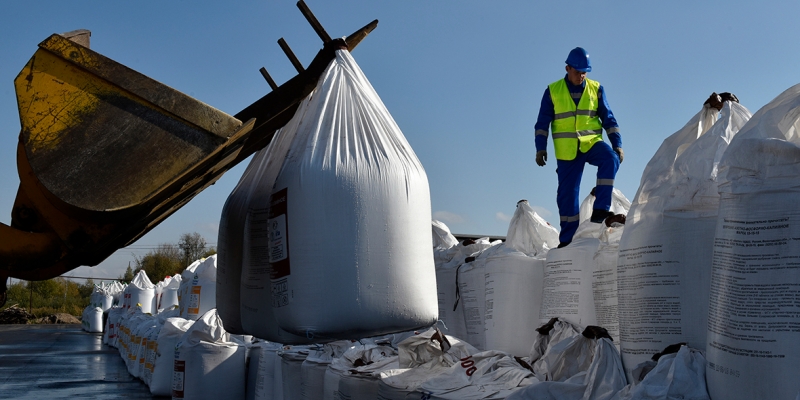UN Secretary General Guterres did discuss with the Russian authorities the resumption of fertilizer exports, but not in the context of the issue of grain ships leaving Ukrainian ports, Nebenzia said
During his visit to Moscow in late April, UN Secretary General Antonio Guterres discussed with Deputy Prime Minister Andrei Belousov the lifting of restrictions on the export of Russian potash fertilizers, but without reference to the issue of grain export from the ports of Ukraine. This was stated to journalists by Russia’s permanent representative to the UN Vasily Nebenzia.
According to Nebenzie, media publications about this are a free interpretation. “The issue of fertilizer trade for grain exports is not worth it. This issue was indeed raised by Guterres, but not in terms of exchanging one for another,” he stressed (quoted by TASS).
There are no conditions between the export of fertilizers and grain,” the permanent representative continued: “We are ready to discuss what we can export. And the second thing [grain] requires further discussions.” According to the permanent Representative, Russia has established a safe corridor with a width of 3 nautical miles and a length of 80 nautical miles to ensure the exit of grain ships, “but they do not leave the port of Odessa.” “We are accused of not letting ships pass, but we did not set the mines,” he added.
Guterres also discussed the prospects of resuming the export of fertilizers to countries that produce agricultural products with President Vladimir Putin, the discussions were “good and positive”, Nebenzia also said. EU countries restricted the import of Russian fertilizers in April.
On May 16, The Wall Street Journal reported, citing sources, that Guterres offered to ease restrictions on the export of Russian and Belarusian potash fertilizers in exchange for the passage of grain ships from the ports of Ukraine; according to the publication, he discussed this issue with Russia and Turkey. The UN World Food Program previously reported that about 25 million tons of grain were “stuck” in Ukraine due to infrastructure problems and “blocked ports of the Black Sea”, including the port in Mariupol, which is under the control of the Russian military.
The Russian Foreign Ministry said that the issues of the supply of Russian potash fertilizers and the export of Ukrainian grain are being discussed, but not at the UN level. Canada and the USA announced the search for an opportunity to export the “stuck” grain from Ukraine.
Read on RBC Pro Pro The Principles of Digital Marketing by Philip Kotler: how to work with a client of the Article Pro Gas supplies to the EU are falling. What will happen to Gazprom shares Pro Forecasts From The Times to “Very strange things”: how fonts became the basis of the Article’s branding Pro Has something to store: reasons for optimism in the warehouse real estate market Pro forecasts will even raise wages for some: short-term forecast for the labor market Pro Forecasts How to understand,that you do not overpay your employees Articles Pro The risk of an eternal “bear” market is real. In which stocks to sit out the fall Forecasts Pro Caste, startups, caution — what you need to know about business in India Articles
According to the World Trade Organization, Russia and Ukraine account for 24% of global wheat supplies.
Materials for the article Authors Tags Subscribe to RuTube RBC Live broadcasts, videos and recordings of broadcasts on our RuTube channel

